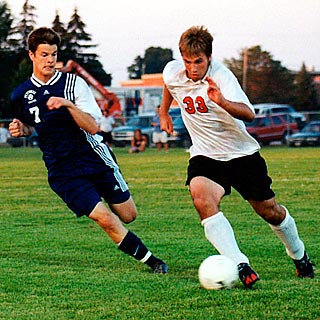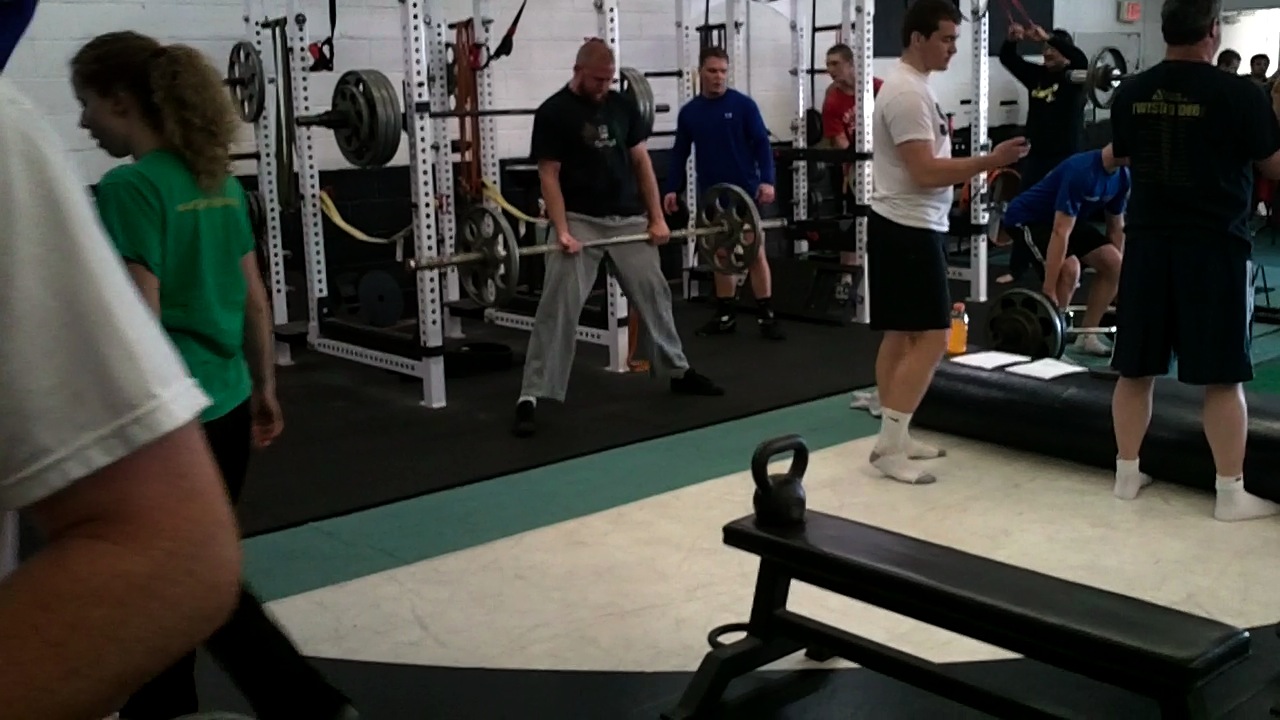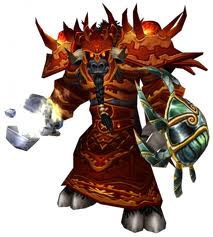Quick Thought on Early Sport Specialization
(Note: If you're wondering what "early sport specialization" refers to, check out THIS great article by Max Prokopy) Correct me if I'm wrong, but seemingly everything is becoming increasingly competitive these days:
- Number of high school clubs (sport and academic) you can be a part of
- College admission requirements
- Grad school admissions
- Climbing the "corporate" ladder in the business realm
- Racing the person next to you in the self-checkout line of a grocery store (yes, I did this yesterday)
- How quickly one can reach level 80 in World of Warcraft
And the list goes on.
Along with all this has inevitably surfaced the incessant push for children to excel in sport as quickly as possible. This will help little Johnny or Sally become the most distinguished child in the neighborhood, and increase the likelihood of receiving a scholarship to a DI or DII university.
Given that SAPT is a facility that strength trains middle and high school athletes , I'm frequently approached by well-intentioned parents informing me that their 12-year old child only needs to be doing drills that are, quote, "specific," to baseball, or soccer, or volleyball, or whatever (in fact this concept is quite similar to the vertical jump issue I discussed on Friday).
 Let me cut to the chase here. As Sarah has mentioned before on this site: Americans have royally screwed up the process of athletic development, in adolescents and adults alike. Along a similar vein, Pavel Tsatsouline (former Soviet Special Forces training instructor) tells us:
Let me cut to the chase here. As Sarah has mentioned before on this site: Americans have royally screwed up the process of athletic development, in adolescents and adults alike. Along a similar vein, Pavel Tsatsouline (former Soviet Special Forces training instructor) tells us:
"Soviet sport science has made it clear: Premature overspecialization delivers a quick increase in performance followed by stagnation. Extensive research and experimentation have demonstarted that athletic specialization must be supported by all-around preparation. That means GPP."
What does this mean? BEFORE an athlete (especially a young one) engages in true, sport-specific training, they are best served working on 'general physical preparedness,' or GPP. This will actually HELP the athlete excel in future sporting events by accumulating a wide range of fitness components, carrying over to a broad scope of tasks.
Given that few seem to understand what 'GPP' actually is, I'll resort to Professor Nikolay Ozolin on this one. Ozolin is one of the founders of Soviet sport science, having mentored Yuri Verkhoshanksy (the "Father of Plyometrics") and is a distinguished athlete and coach of the USSR himself. He defines GPP as:
"GPP contains the idea of all around physical development. Which is why the qualities developed by GPP may be called general as they express the ability of the organism and its psychological sphere to perform any physical work more or less successfully. Hence general endurance, general strength, general joint mobility, general coordination, general psychological preparedness."
At SAPT, when we train our young athletes (even high school athletes, depending on their stage or emotional+physical development) we help them develop a wide range of physical attributes that will help them not only in their chosen sport, but also in countless other physical endeavors. Then, when they are actually ready for true sport specific training, they'll be way better off than if they specialized too soon. And yes: SAPT does of course take into consideration the sport the athlete plays and adjusts the program accordingly, but not at the expense of neglecting other physical attributes.
 In closing: Encourage the young athlete (be them your child or not) to immerse themselves to a wide range of sports and physical skills. While it may appear counterintuitive, this will actually:
In closing: Encourage the young athlete (be them your child or not) to immerse themselves to a wide range of sports and physical skills. While it may appear counterintuitive, this will actually:
- Prevent early stagnation and help them maximally blossom when it comes time for true sport-specific training
- Potentially expose them to a sport they enjoy more or are more adept at than the sport they (or their parent!) thinks they were initially meant to specialize in
- Reduce the risk of overuse injuries (ex. it's scary how many adolescent baseball players are developing elbow+shoulder dysfunction due to early sport specialization)
- Help the athlete enjoy training for the sake of training. Then, even after their competitive athletic career is over, they can still engage in physical activity without a negative association
- Give the child more time for things he/she actually enjoys! Be it fishing, ice skating, doing schoolwork, playing backyard football, whatever.
SAPT Blog Gems of 2011
With it being the Friday before the New Year, I thought this would make a good time to share some of the most popular blog posts I wrote during 2011. I thought it would make a great way for some of our newer readership to catch some things they may have missed, give our "veteran" followers some reminders of things they may have read a while ago, and hey, not gonna lie, it makes for an easy day of blog content on my end! 2011 saw substantial growth for SAPTstrength, and I honestly cannot thank you all enough for your support. This was also the first year I made a effort to write consistently, totaling roughly 150 blog posts (along with a few additional articles for websites).
It amazes me to see the readership of this site growing weekly, and it really does humble me to know that many of you out there enjoy the coaches+writers of this site (Sarah, Chris, and myself), and think that we, to put it scientifically: don't suck.
That being said, let's get to the list. Happy New Year everyone, and we look forward to 2012 with you all!
Warrior, The Resistance, Mobility, and Happy Birthday Baggins
You know, it's so funny, sometimes the posts I put together last-minute, on a whim, and in a "holycrapIcan'tthinkofanythingtowritesoletmediscussLordoftheRings" mindset, are the ones that receive the most traffic. This one topped the list, and it wasn't even really about training! Geeze people, comon'! Stop being so hard to please.
I don't know if it's because I talked about Lord of the Rings or discussed the epicness of Tom Hardy's traps, but apparently this one hit home with you all.
26 Things I've Learned: Training Edition
Okay, now for some that are actually training related. Here I recap - via 26 short bullet points - several "ah ha" moments I've had since entering the strength and conditioning industry. This one trimmed the fat and gave the "quick and dirty" for anything ranging from improving one's results in the gym to program design.
A Few Things I've Learned: "Life" Edition
It honestly surprised me how much traffic this one received, as I wasn't anticipating this post being that big of a hit. Here I put on my sage hat (at least as much as possible for me to do so) and give some quick bullet points on anything from behavior economics to yellow traffic lights.
You know what they say about discussions with in-laws at the dinner table: Avoid the topics of politics, religion, and......CrossFit. Just kidding (kinda), but it does seem that people tend to fall on vastly different ends of the spectrum when it comes to CrossFit. It's as if it's an either-or topic...black and white, if you will: Either it's so evil worse than Satan himself, or it's so good it has saved you from congestive heart failure.
In this post, I do my best to look at it from an objective point of view. Is it for elite athletes? General fitness enthusiasts? Are ALL affiliates awful facilities that (quote) "do nothing but injure people?" Click the link to see for yourself.
To Overhead Press or Not to Overhead Press
The overhead press is a hot topic of debate among doctors and strength coaches alike. See this Q & A for a quick run down on if the overhead press is the right exercise for you.
And now, here are two great ones from Sarah and Chris:
A Little Bit About Knee Injuries - Sarah Walls
Here Sarah does a great job breaking down the what, why, and how-to-prevent of knee injuries. Notice that one of her main points is to "get those glutes firing!" I can't tell you how many times I'm working with a female with a knee injury/pain and have her doing glute work when she looks at me, and (*cue sassy voice*):
"Um, I don't want my BUTT to get any bigger...."
Well, do you want your knee pain to increase in magnitude, too?? Get those glutes workin' girl! Your butt circumference won't increase in an unfavorable way, I promise.
Our Take on "Sport Specific" - Chris Romanow
Last, but certainly not least, is an excellent short blurb by Chris on sport specific training. I can't tell you how many times I'm asked by a well-intentioned parent on why I'm not having their child perform X exercise since it is "sport specific." Should you do band-resisted running if you're a sprinter? Is it really necessary to have a soccer player squat, since it doesn't look like a very "sport specific" drill? See his points on the link above.
**That's all for now. Feel free to chime in below for any topics you'd like to see covered in 2012!**






